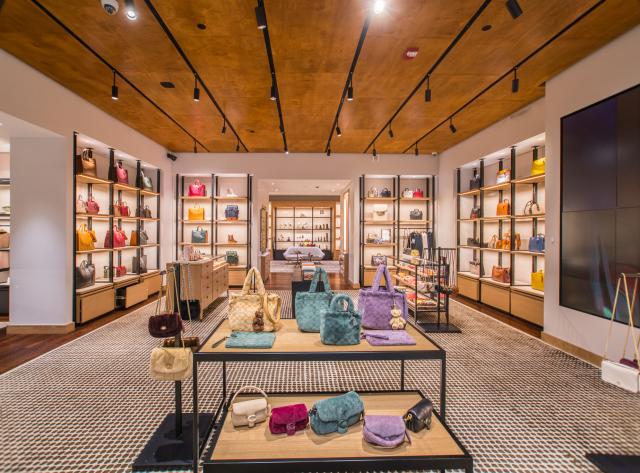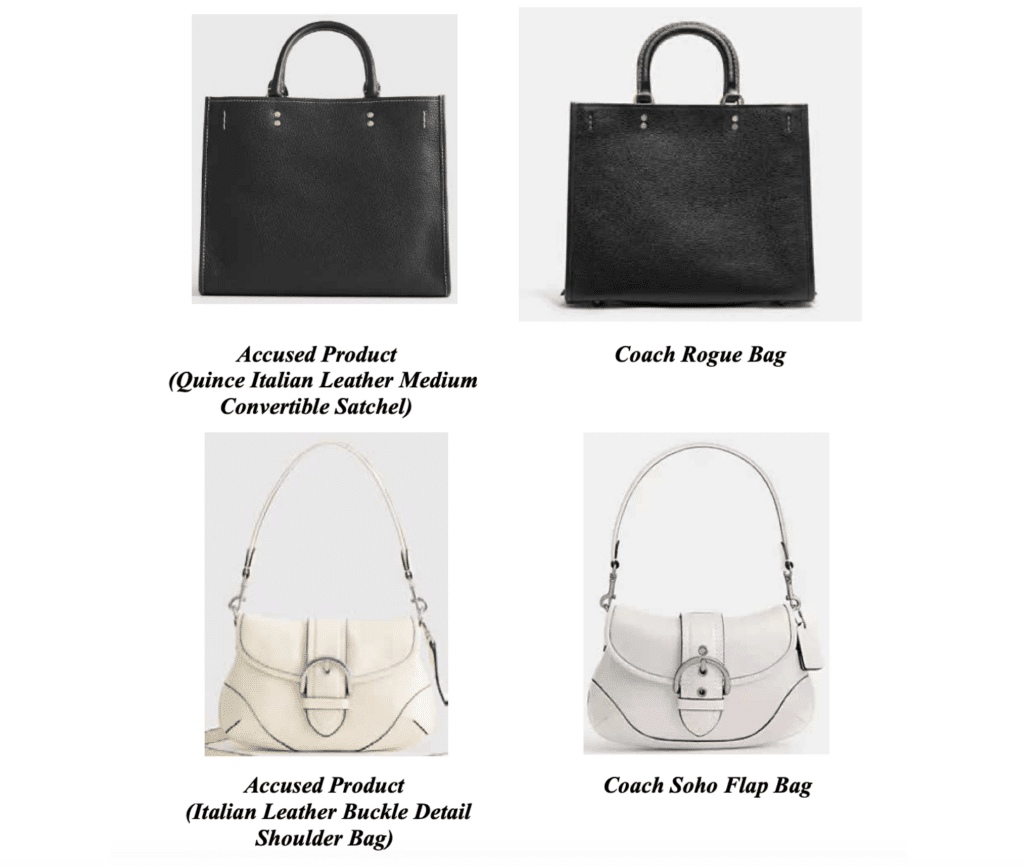In a significant move to protect its brand identity, luxury fashion house Coach has initiated a lawsuit against direct-to-consumer brand Quince. The case centers on allegations that Quince’s handbags infringe upon the distinctive design elements (trade dress) of Coach’s renowned Rogue and Soho Flap bags. This legal battle underscores the ongoing tension between high-end brands and emerging companies offering similar styles at more accessible price points.

(Image from: https://www.visitthewoodlands.com/listing/coach/546/)
Coach and its parent company, Tapestry, filed the lawsuit on April 4, 2025, in the U.S. District Court for the Northern District of California. The complaint accuses Quince of trade dress infringement, unfair competition, and false designation of origin. Specifically, Coach claims that Quince’s “Italian Leather Medium Convertible Satchel” and “Italian Leather Buckle Detail Shoulder Bag” are “substantially indistinguishable” from Coach’s Rogue and Soho Flap bags, respectively. The alleged similarities include distinctive hardware placements, stitching patterns, and overall silhouettes, which Coach asserts are non-functional and serve to identify the brand in the eyes of consumers.
The Concept of Trade Dress
Trade dress refers to the overall visual or appearance of a product or service, including elements like packaging, product configuration, and even store decor, that identify the sources of that product or service. Unlike trademarks, which protect brand names and logos, trade dress can encompass features such as size, shape, color, texture, packaging, and design.
The Lanham Act is a federal statute that governs trademarks, service marks, and unfair competition, protecting brand names, logos, and product designs to prevent consumer confusion and businesses’ goodwill. For protection under the Lanham Act, the trade dress must be non-functional and have acquired distinctiveness, meaning consumers associate those features with a particular source. Under the Lanham Act, a trademark owner can recover several types of monetary damages for infringement, including the defendant’s profits, actual damages suffered by the Plaintiff, a reasonable royalty, and sometimes attorney’s fees.
In this case, Coach argues that the design elements of its Rogue and Soho Flap bags have achieved such distinctiveness through extensive marketing and consumer recognition. Coach contends that Quince’s similar designs could cause consumer confusion regarding the origin of the products.

(Image from: https://www.thefashionlaw.com/coach-sues-quince-for-trademark-infringement-over-handbag-dupes/)
This lawsuit is not an isolated incident but part of a broader trend where established brands increasingly take legal action to protect their designs from being replicated by emerging companies. Companies like Coach, Chanel, and Louis Vuitton have increasingly turned to the courts to defend their brand identities. While “dupes” make popular styles more accessible, often going viral on platforms like TikTok for their affordability, they also threaten to dilute the distinctiveness of iconic designs and thus pose challenges to brand identity and consumer perception.
As the legal proceedings unfold, the fashion industry will closely watch design protection and brand integrity implications. Whether the court sides with Coach or Quince, the decision will undoubtedly influence future interactions between luxury brands and emerging fashion companies.
